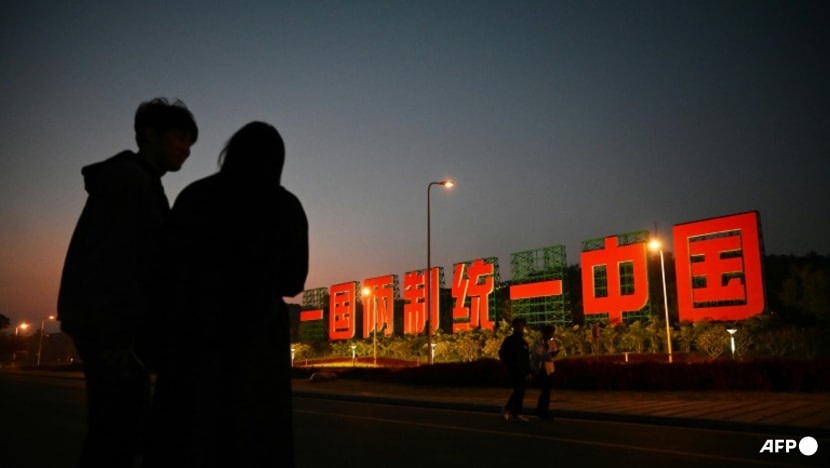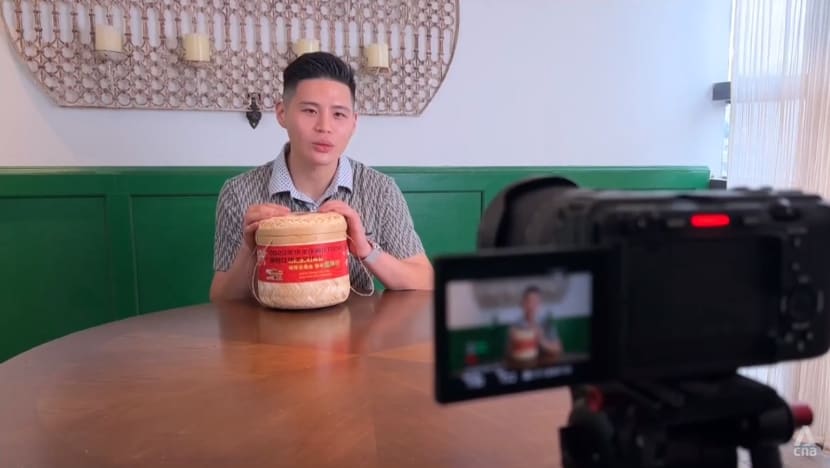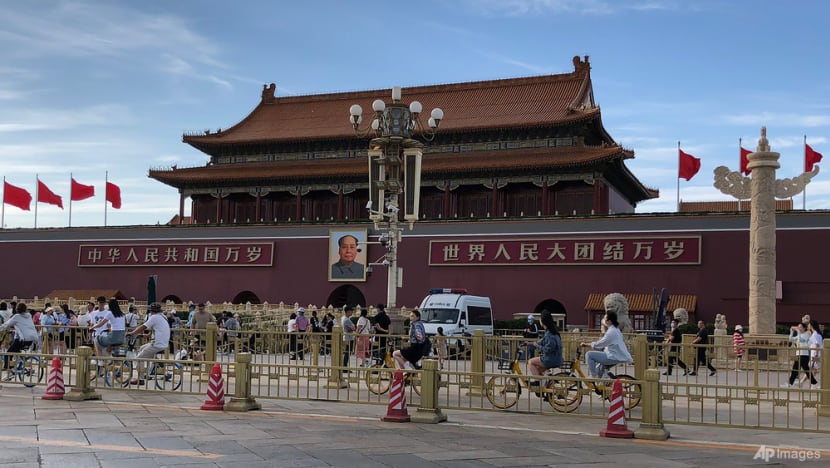Taiwan Votes 2024: Beijing watches presidential race, dangling carrots for integration plans
In Fujian, the closest Chinese province to Taiwan, a series of measures have been proposed in a bid to further integrate Taiwan and the coastal province.


This audio is generated by an AI tool.
FUJIAN, China: Beijing is watching Taiwan’s upcoming presidential election closely, as Taiwanese voters head to the ballot boxes this Saturday (Jan 13).
If the pro-independence Democratic Progressive Party (DPP) wins the right to rule the island for a third consecutive term, it could spell years of turbulence across the Taiwan Strait.
As it is, ties between mainland China and Taiwan are already strained in areas such as diplomacy and in trade.
Cross-strait relations have been on a decline since incumbent President Tsai Ing-wen’s DPP came to power in 2016, with its deep concerns over Chinese interference well documented.
FROM COAST TO COAST
China has always maintained that Taiwan is an inalienable part of its territory.
Nowhere is this clearer than in Fujian, the closest Chinese province to Taiwan, where a series of measures have been proposed in a bid to further integrate Taiwan and the coastal province.
These include making it easier for Taiwanese people to settle down, buy a home, find work and get medical insurance.
Xiamen, a southern Chinese coastal city in Fujian, is situated just across from Taiwan's outlying Kinmen islands. At their closest point, the Taiwanese Kinmen islands and Xiamen are less than 2km apart.
A beach in Xiamen, with a gigantic signboard erected next to it saying “One country, two systems to unify China”, has attracted groups of Chinese tourists who are curious to catch a glimpse of the other side.
“I’m thrilled to see these eight words. Reunification is what the people need urgently,” one Chinese visitor told CNA.
Another visitor, who brings her daughter to the spot often, said: “When I see this (sight) I am filled with a strong sense of pride in the strength of our country, fully confident in the future reunification of our motherland.”
SHIFT IN PERCEPTION
Among the many Taiwanese youths studying in mainland China is 24-year-old Chen Bo Yuan. He said his time in China has changed his perceptions of the communist country.
He has become a loud advocate of cross-strait reunification through video logs and even songs that he has written and performed himself.
"When I share my feelings (about China) with my Taiwanese friends, they would say, ‘Have you been brainwashed? You must really be brainwashed’,” Mr Chen told CNA.
He added that many Taiwanese netizens also criticise him whenever he posts content on cross-strait integration.

Despite the criticisms, Mr Chen said he still found his experience studying in China invaluable.
He said that Taiwanese youths need more exposure in order to truly understand China, before passing judgement themselves.
The cross-strait integration plan unveiled by the Chinese State Council is part of China's longstanding strategy to foster closer ties with Taiwan.
“We will suppress pro-Taiwan independence forces while using a soft approach towards the Taiwanese people,” Professor Li Fei from Xiamen University’s Taiwan Research Center told CNA.
“It is a carrot-and-stick approach. The carrot is to promote cross-strait integration and preferential policies for the Taiwanese."
He added that despite many Taiwanese opposing reunification after seeing how Hong Kong is governed under the "One Country, Two Systems" principle, there is room for negotiation.
“The conditions for Taiwan’s 'One Country, Two Systems' may be discussed. 'One Country' is non-negotiable, but 'Two Systems' is negotiable. We are constantly adjusting and adapting it,” said Prof Li.
“We have to adapt it according to how we reunify with Taiwan. If it is a peaceful reunification, of course we can discuss the conditions. If it is a non-peaceful reunification, the system may be different."
BETWEEN WAR AND PEACE
Beijing has framed the upcoming Taiwanese presidential contest as a choice between war and peace.

China has never renounced the use of force to bring Taiwan under its control.
In March last year, Chinese President Xi Jinping vowed to build up China’s military into a “Great Wall of Steel” to defend the country’s sovereignty.
Mr Xi had also said that when it came to Taiwan, China must oppose pro-independence and secessionist activities and the interference of external forces.
The Taiwanese business communities are most worried about what is at stake, particularly with China threatening to suspend its only free trade agreement with Taiwan.
Ms Song Keqi, head of Jeng Yang Logistics, told CNA her firm has companies on both sides of the Taiwan Strait, and will be impacted as the exchange of goods between both sides is closely related to politics.
“Regardless of how the elections turn out in Taiwan, from a policy perspective, the mainland government has always encouraged the smooth flow of goods and people across the strait,” she said.
In December, China concluded a months-long investigation into Taiwan's alleged trade restrictions on Chinese products, under the Economic Cooperation Framework Agreement (ECFA).
Beijing announced that the restrictions constitute trade barriers, and in turn suspended tariff reductions of some Taiwanese imports under the ECFA at the start of this month.















